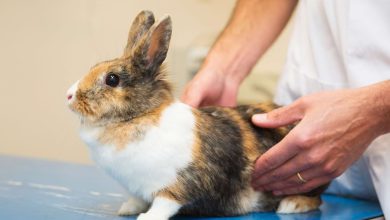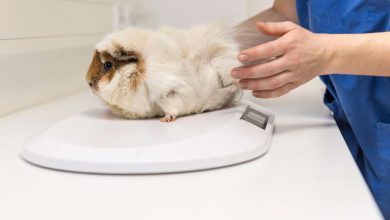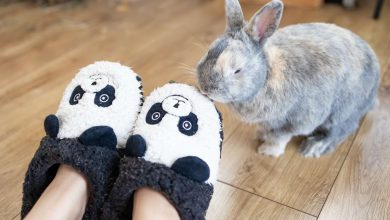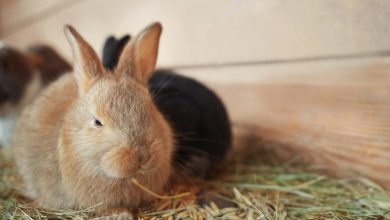13 Common Items That Are Dangerous for Guinea Pigs
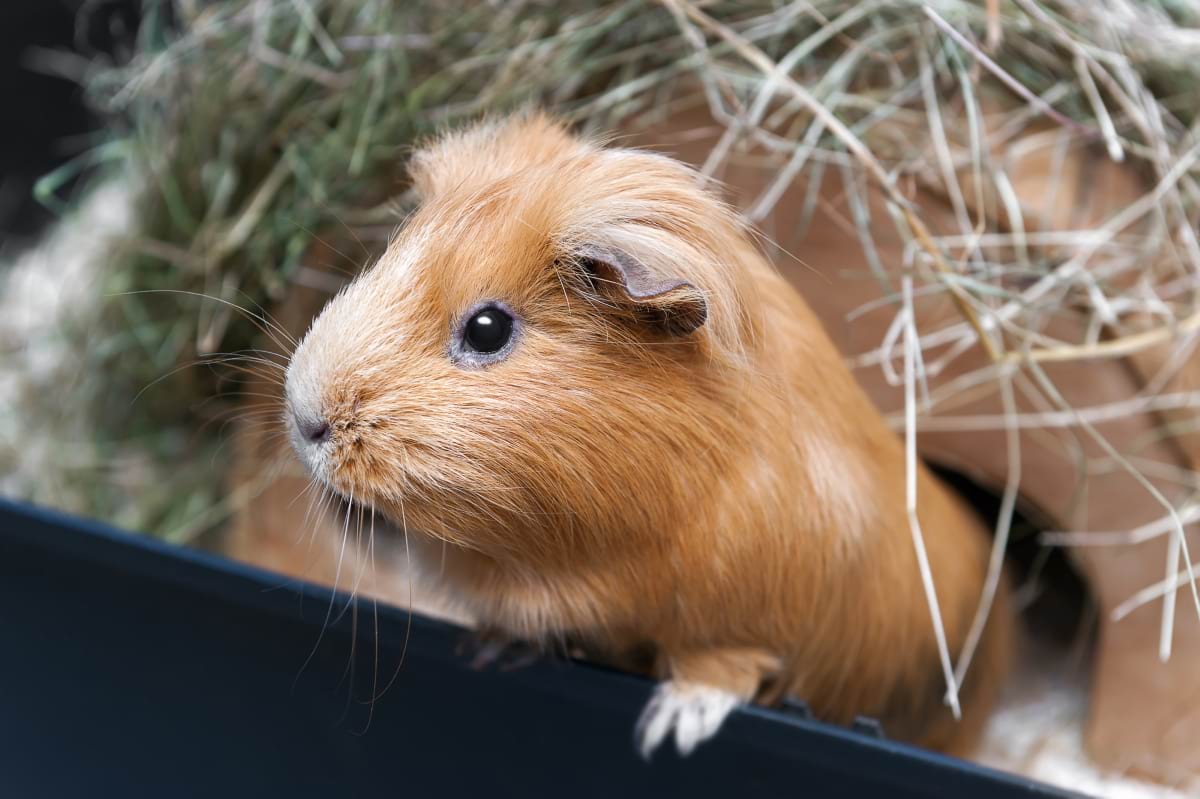
When I adopted my first guinea pigs, I made so many common mistakes! I didn’t know about all of the items sold by pet stores that are dangerous for guinea pigs. Luckily, there is now a lot more information out there to educate new piggy owners.
Common items that are unsafe for guinea pigs include small cages, hamster wheels and balls, harnesses, and some foods and treats labeled as guinea pig-safe. Also, avoid items with holes small enough for your piggies’ heads to get stuck inside.
In this article, I’ll take you through 13 items that are unsafe for guinea pigs with explanations and alternative purchases that will keep your piggies healthy and happy.
Unsafe Guinea Pig Cages and Accessories
1. Unsuitable Cages and Hutches
Unfortunately, most pet store cages and hutches are much too small for guinea pigs, who need at least 7.5 square feet of floor space.
Not having room to run around can cause poor fitness, boredom, and depression. Small cages also become dirty more quickly, which can lead to health issues like bumblefoot or respiratory infections if the cage isn’t cleaned often enough.
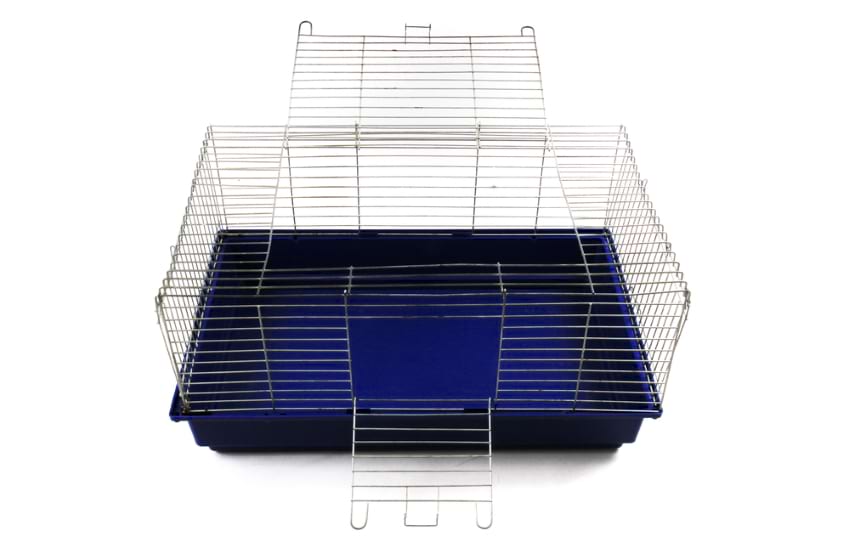
2. Wheels
Unlike hamsters, guinea pigs do not need wheels to run on. They can actually cause spinal damage and should be avoided!
Instead, provide a large cage with plenty of room to run around. Remember guinea pigs don’t need multiple levels but should have ample flat space on the first level of their cage.
In addition to a large cage, regular floor time (if your guinea pigs enjoy it) is a great way to exercise them.
3. Hamster Balls
Hamster balls are unsafe for all pets and should be avoided completely. They cause stress and don’t have proper ventilation. If your guinea pig bumps into things while in the ball, they can injure themselves.
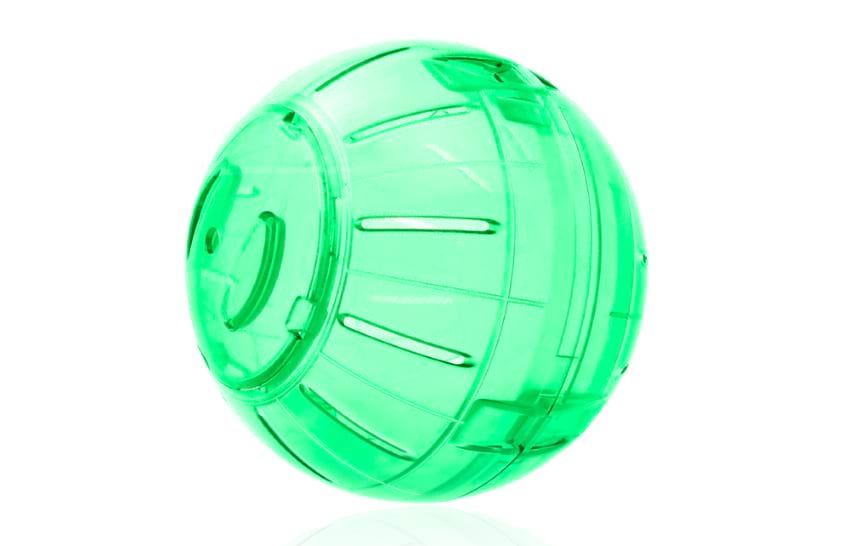
4. Harnesses
It sounds fun in theory to take your piggy for walks, but harnesses can damage their fragile spines. Instead, I opted to let my guinea pigs adventure in a piggy-proofed room. They especially loved crawling inside the bottom houses of my cat trees (with the cats safely in the other room, of course)!
You can also bring them outdoors in a playpen so long as you provide constant supervision. However, please remember to be cautious. Make sure the temperatures are safe, provide shade on hot days, and look out for rain or predators.
5. Hay Racks
Not all hay racks are bad, but many are dangerous! Avoid hay racks with holes your guinea pig cannot fit their whole body inside of.
You don’t want them to get their heads stuck, as they can injure themselves or become ill from not being able to eat or drink.
I made the mistake of buying hay racks with holes smaller than my piggies’ heads, but the problem with these is that they restrict their hay access and often don’t hold much hay. Your guinea pigs need to be able to eat their hay easily without working for it.
I prefer hay piles for the added enrichment, but you can also purchase hay bags or racks with large openings.
6. Hides and Toys with Small Openings
Windows in hides are often too small, and your piggies can get their heads stuck inside. The same goes for toys with loops or openings.
Guinea pigs are most likely to get their heads stuck when they’re reaching for food or chewing edible items, but any item with a small opening is a risk.

7. Toys with Small, Removable Pieces
Guinea pigs love to chew, so it’s vital not to give them items that can become choking hazards. Avoid toys with small pieces that can be broken off and choked on.
8. Puppy Pee Pads
Many people line their cages or litter boxes with puppy pee pads, and this is fine! But if you use disposable ones, make sure they’re covered so that your piggies can’t chew on them. Otherwise, they may cause intestinal blockages.
9. Plastic Items
Plastic items like the hidey houses sold in most pet stores aren’t always bad, but they can be dangerous. If your guinea pig chews on their plastic items, please remove them immediately.
If they leave the plastic alone, there’s no harm in keeping it in the cage! I personally prefer to avoid plastic because, in my experience, it does get chewed–and I don’t like buying things I likely won’t be able to use for my piggies.
10. Open-top Outdoor Playpens
An outdoor playpen isn’t always unsafe but is often misused. Leaving your guinea pigs unsupervised in an open-top outdoor pen is dangerous. They’ll be exposed to birds of prey, outdoor cats, and several other predators who may enter your yard.
Please remember that it only takes a second for something to go wrong. Never turn your back on your piggies outdoors!
Unsafe Foods Sold for Guinea Pigs
11. Pellets with Bright Pieces or Seeds
For adequate nutrition, your guinea pigs should have a plain, timothy-based pellet from a trusted brand. Veterinarians most often recommend Oxbow, but there are a few quality pellets on the market to choose from.
Brightly-dyed pellets look more appetizing to the human eye, but this is all marketing and not in guinea pigs’ best interest. Mixes that contain seeds are also harmful as seeds should never be a part of your piggies’ diet.

12. Dairy Treats
It’s also common for pet stores to sell yogurt drops or other dairy treats, even though guinea pigs should never have dairy. Avoid these treats and instead feed a small piece of fruit once a week or hand-feed your piggies their daily veggies.
You can also purchase safe guinea pig treats but I do recommend researching each ingredient, and opting for ones with few ingredients when possible.
13. Vitamin C Drops
When I first adopted my guinea pigs, I remember buying vitamin C drops to put into their water. These are unfortunately still commonly sold and recommended today.
The problem with these drops is that the vitamin C degrades in sunlight, making it useless. The taste of the drops can stop your guinea pigs from drinking enough water.
In addition, you should never rely on supplements alone for your guinea pigs’ health. Even safe supplements shouldn’t be a replacement for fresh veggies that are rich in vitamin C.
Overall, it’s easy to make mistakes when buying supplies for your first guinea pigs. Please don’t beat yourself up if you’ve purchased something unsafe–simply replace it with a better item now that you know better!
Remember to always research new items before purchasing, since sadly pet stores market many items toward our pets that are unsuitable for them.
